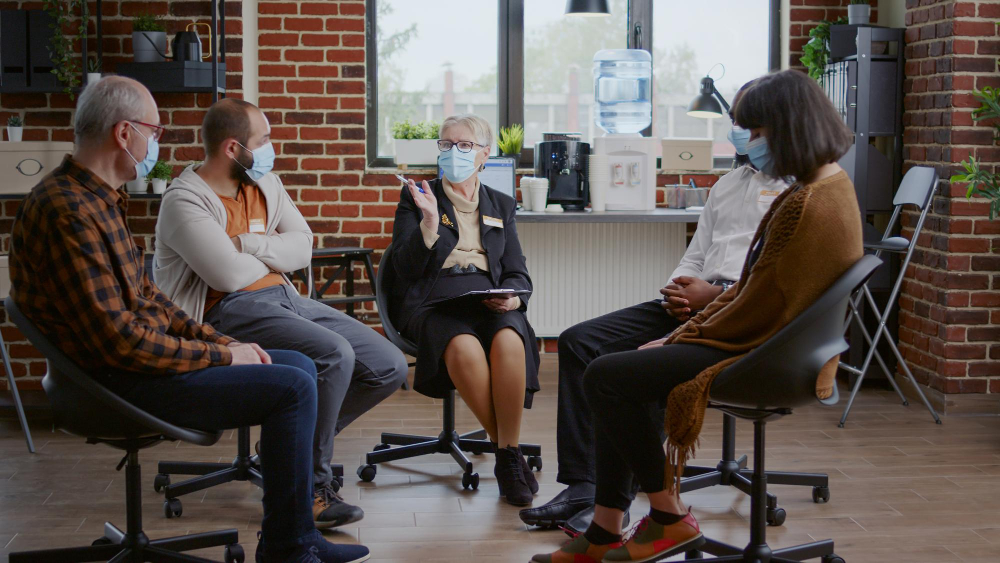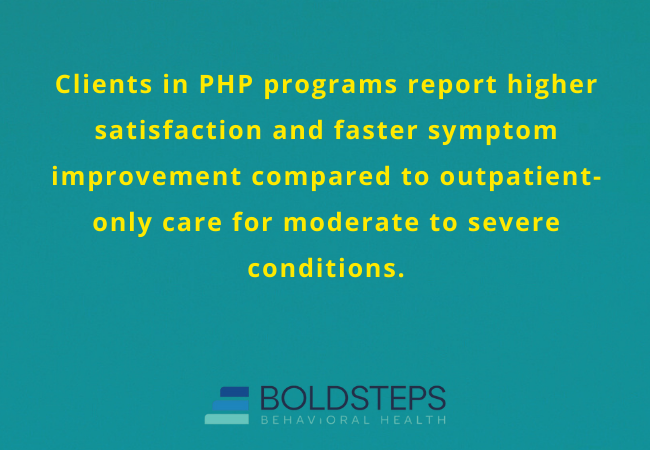For many individuals seeking mental health treatment, the biggest challenge isn’t finding care—it’s finding care that fits. While inpatient hospitalization provides acute stabilization, and outpatient therapy offers long-term support, what happens when someone needs more than one session a week, but less than 24/7 supervision?
This is where a Partial Hospitalization Program (PHP) plays a vital role. At Bold Steps Behavioral Health in New Hampshire, our PHP offers a structured, evidence-based environment that serves as a critical bridge between inpatient and outpatient care. It’s a place where recovery continues—intensely, intentionally, and with the support necessary to build lasting change.
What Is a Partial Hospitalization Program (PHP)?
A Partial Hospitalization Program is a day-treatment model designed for individuals who require comprehensive, daily therapeutic support without the need for overnight care. Clients in PHP typically:
- Attend treatment 5 to 6 days per week
- Spend 4 to 6 hours per day in structured therapy and skill-building sessions
- Return home or to supportive housing at night
- Participate in a personalized plan that includes individual therapy, group therapy, psychiatry, and case management
It’s the most intensive non-residential level of care and forms the core of many successful recovery journeys.
How PHP Compares to Inpatient and Outpatient Care
| Level of Care | Intensity | Time Commitment | Ideal For |
|---|---|---|---|
| Inpatient | High | 24/7 supervised care | Acute crisis, safety concerns |
| PHP | Moderate | 4–6 hours/day, 5–6 days/wk | Transitioning post-inpatient, moderate to severe symptoms |
| IOP | Medium | 3 hours/day, 3–5 days/wk | Need more than outpatient, less than PHP |
| Outpatient | Low | 1–2 sessions/week | Maintenance, mild symptoms |
PHP fills the critical space between high-risk hospitalization and flexible outpatient therapy, ensuring no one falls through the cracks.
Who Benefits Most from PHP?
PHP is ideal for individuals who:
- Have recently been discharged from inpatient care
- Are struggling in outpatient or IOP and need more support
- Experience frequent emotional distress, mood instability, or functional impairments
- Require intensive therapy, psychiatric monitoring, and structure
- Are dealing with co-occurring substance use and mental health disorders
It’s especially helpful for those in our Depression Treatment Program in New Hampshire and Anxiety Disorder Treatment, where daily support accelerates recovery.
PHP as a Step-Down from Inpatient Mental Health Treatment
Leaving an inpatient facility can be overwhelming. PHP helps clients:
- Maintain progress made in inpatient care
- Avoid relapse or crisis during the vulnerable transition period
- Rebuild routines while still in a safe, therapeutic space
- Reconnect with loved ones while still having strong clinical oversight
- Continue medication management and therapy without interruption
This step-down approach prevents individuals from slipping into old patterns during early recovery.
PHP as a Step-Up from Outpatient or IOP
When outpatient therapy or even an IOP isn’t enough, PHP offers the next level of care before hospitalization is required. It provides:
- More frequent check-ins and faster interventions
- A wider range of clinical services, including daily group therapy and psychiatric support
- Greater accountability and a daily structure that supports behavioral change
- More time for clients to develop and practice new skills
PHP can act as a preventative level of care, keeping clients stable and supported.
Structure and Routine: The Healing Power of Daily Support
At Bold Steps NH, our PHP creates a therapeutic rhythm through:
- A consistent weekly schedule
- Therapy blocks divided into skill-building, processing, and wellness
- Peer group sessions that promote connection and belonging
- Daily goals and reflection exercises
This structure reduces uncertainty and supports clients in regaining control over their time, their choices, and their lives.
Therapies and Services Offered in PHP at Bold Steps NH
Our Partial Hospitalization Program in New Hampshire includes:
- Cognitive Behavioral Therapy (CBT) for thought restructuring
- Dialectical Behavior Therapy (DBT) for emotion regulation and mindfulness
- Trauma-informed therapy for PTSD and complex trauma
- Motivational Interviewing to support change readiness
- Relapse prevention and addiction recovery support
- Case management for housing, vocational planning, and social services
- Daily progress monitoring and crisis planning
Each client’s care plan is tailored to their diagnosis, background, and goals.
How PHP Supports Dual Diagnosis: Treating Mental Health and Addiction Together
Many clients face both a mental health condition and a substance use disorder. Our PHP includes a dedicated dual diagnosis track within our Addiction Treatment Program in New Hampshire, which offers:
- Integrated care for mental illness and addiction
- Education on how the two conditions interact
- Skills for managing triggers, cravings, and emotional instability
- Medication-Assisted Treatment (MAT) oversight when needed
- 12-step-compatible or alternative support group referrals
Treating both conditions together improves outcomes and reduces relapse risk.
Conditions Treated in PHP: From Anxiety to Depression and More
Our PHP supports individuals living with:
- Major Depressive Disorder
- Generalized Anxiety and Panic Disorders
- Post-Traumatic Stress Disorder (PTSD)
- Obsessive-Compulsive Disorder (OCD)
- Bipolar Disorder (non-acute)
- Dual diagnosis conditions involving addiction
- Emotional dysregulation and mood instability
Treatment focuses on stabilizing symptoms, increasing insight, and building a sustainable foundation for long-term recovery.
Real-World Preparation: Life Skills, Coping Strategies, and Peer Support
In PHP, clients don’t just learn theory—they practice skills they’ll need to function outside treatment, including:
- Stress and emotion regulation
- Time and task management
- Conflict resolution and healthy boundaries
- Communication skills and assertiveness
- Sleep hygiene, nutrition, and wellness habits
This practical support bridges the gap between treatment and independence.
The Role of Psychiatry and Medication in PHP Recovery
Medication can be a vital part of recovery. PHP clients receive:
- Regular psychiatric evaluations
- Medication adjustments and monitoring
- Education about medication side effects and interactions
- Coordination with outside prescribers if needed
This ensures mental health stability alongside therapy and life skills development.
Family Involvement and Support in PHP
We involve families when appropriate through:
- Family therapy sessions to rebuild communication and trust
- Education on mental illness, substance use, and recovery
- Boundary setting and codependency workshops
- Guidance for loved ones on how to support without enabling
Healing often involves the entire system—and PHP helps families become part of the solution.
What a Week in PHP Looks Like at Bold Steps NH
| Day | Time | Focus Area |
|---|---|---|
| Monday | 9 AM – 3 PM | CBT group, individual session, wellness skills |
| Tuesday | 9 AM – 3 PM | DBT group, relapse prevention, psychiatry |
| Wednesday | 9 AM – 3 PM | Trauma processing, family therapy |
| Thursday | 9 AM – 3 PM | Peer support, coping tools workshop |
| Friday | 9 AM – 1 PM | Discharge planning, mindfulness, goal review |
Each day reinforces structure, growth, and community support.
Transitioning from PHP to IOP or Outpatient Treatment
After completing PHP, clients may step down into:
- Intensive Outpatient Program (IOP) for continued group therapy and support
- Outpatient Treatment Program for long-term individual therapy and medication management
- Community groups and alumni support for added accountability
This continuum of care helps clients avoid relapse and continue building on the skills developed in PHP.
Why Choose Bold Steps NH for PHP in New Hampshire
We are a trusted Behavioral Health Treatment Center in New Hampshire because we offer:
- A full team of licensed clinicians and psychiatric providers
- Dual diagnosis care for mental health and addiction
- Evidence-based, trauma-informed programming
- Personalized care plans and goal tracking
- Flexible discharge and transition planning
- A compassionate, inclusive environment that promotes healing
Conclusion
Recovery doesn’t happen overnight—and it doesn’t happen in isolation. The Partial Hospitalization Program at Bold Steps NH offers the essential structure, daily support, and clinical expertise needed to help you stabilize after crisis or take control before symptoms spiral.
Whether you’re stepping down from inpatient care or stepping up from outpatient support, PHP helps you rebuild confidence, reinforce progress, and prepare for long-term success—without disconnecting from your life outside treatment. Call 603.915.4223 to schedule a confidential assessment. Let us help you cross the bridge from surviving to thriving—with a care team that walks beside you every step of the way.
FAQ on Inpatient and Outpatient Mental Health Care
What is a Partial Hospitalization Program (PHP)?
PHP is a structured, intensive day-treatment program offering therapy and psychiatric care without requiring overnight stays. It bridges inpatient and outpatient care.
Who should consider PHP?
PHP is ideal for individuals stepping down from inpatient treatment or those whose symptoms are too intense for outpatient care but who don’t need 24/7 supervision.
How is PHP different from IOP and Outpatient Therapy?
PHP involves 4–6 hours of treatment per day, 5–6 days per week. It offers more intensive support than IOP or outpatient therapy, but less than inpatient hospitalization.
What conditions can be treated in PHP?
PHP supports clients with depression, anxiety, PTSD, bipolar disorder (non-acute), and dual diagnosis conditions involving substance use.
Does PHP include addiction treatment?
Yes. Bold Steps NH offers integrated dual diagnosis care with relapse prevention, MAT, and addiction-focused therapy as part of PHP.
What happens after PHP?
Clients can transition to IOP or outpatient therapy for continued support, maintaining connection while gaining more independence.



